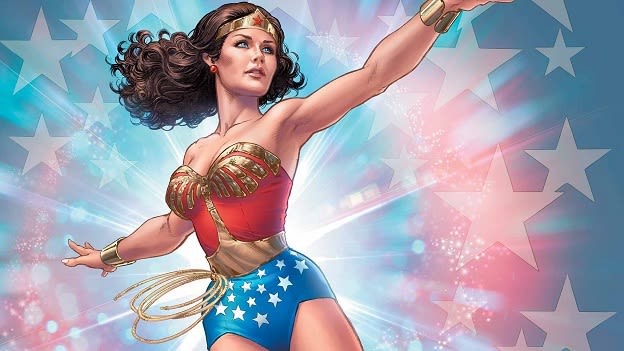Wonder Woman: Diversity gets a new name at UN

75 years ago when William Moulton Marston created a comic character, little did he know that it will one day become the face for women empowerment. Wonder Woman appeared first in October 1941 and the story which was first published by DC Comics said it was created to “test her appeal at a time when female superheroes were rare.”
The United Nations is going to launch a global campaign supporting Sustainable Development Goal #5, which is to “achieve gender equality and empower all women and girls”. The announcement is going to be held in New York on October 21, the same day Wonder Woman will turn 75, and they will also declare her as the Brand Ambassador. The announcement is due to be attended by UN secretary-general Ban Ki-moon, DC Entertainment president Diane Nelson and some other guests.
Do we have enough Wonder Women today?
There are inspirations galore. But it’s still not enough. Women fight tooth and nail to reach the pinnacle of success in their career or otherwise – look at Malala Yousafzai who had to take a bullet when she dared to defy the Taliban ban on girl’s education, Indira Nooyi when she said “women can’t have it all”, and thousands of women who are trying to fix the loose ends so that they continue with their jobs and also look after homes. And then you have labels such as ‘Queen Bee Syndrome’ attributed to women when they don’t/can’t see other women progress.
If you are women with a graduate degree armed with a full-time job, you constitute the crème-de-la crème of the working women percentage globally. According to a Catalyst Report, 13.4% of Indian working women have a regular salaried job compared to 21.2% of working men (aged 15–59). Even in this time and age, where education, jobs are not something of a fairy tale for women, there are very less female representations in senior level positions in various organizations.
For every 100 women promoted to manager, 130 men are promoted. Promotion rates for women lag behind those of men, and the disparity is the largest at the first step up to manager. As a result, far fewer women end up on the path to leadership. This was found in a Study by LeanIn.Org and McKinsey titled Women in the Workplace, to encourage female leadership and gender equality in the workforce. Only 40% of women are interested in becoming top executives, compared to 56% of men.
Why do we need Wonder Woman today?
According to one UN report, Women bear disproportionate responsibility for unpaid care work. Women devote 1 to 3 hours more a day to housework than men; 2 to 10 times the amount of time a day to care (for children, elderly, and the sick), and 1 to 4 hours less a day to market activities. In the EU for example, 25% of women report care and other family and personal responsibilities as the reason for not being in the labour force, versus only 3% of men. This directly and negatively impacts women’s participation in the labour force.
“Gender equality is not only a fundamental human right but a necessary foundation for a peaceful, prosperous and sustainable world,” says the UN. “Providing women and girls with equal access to education, health care, decent work, and representation in political and economic decision-making processes will fuel sustainable economies and benefit societies and humanity at large.”
Empowerment of women is the new mantra for all Governments and organizations. The Indian Government is promoting it in various forms with ‘Beti Bachao, Beti Padhao’ campaign, sops for parents with baby girls etc. While organizations are becoming fluid with their policies around maternity leaves and baby care, United Nations is officially launching their campaign with Wonder Woman as its Brand Ambassador.
Research has proved that organizations with more women in the decision-making roles attribute to a better profitability of those companies. A McKinsey Global Institute report finds that $12 trillion could be added to global GDP by 2025 by advancing women’s equality.
The Women in the Workplace report points that although company commitment to gender diversity is at an all-time high, but they are struggling to put their commitment into practice since many employees are not on board. “Although there’s no “one size fits all” solution, there are steps companies can take to advance their gender diversity efforts and create a fairer, more inclusive work environment,” says the Report.
Diversity is not about giving out sops or freebies, it’s about equality. Equality in compensation, benefits, roles, and responsibilities without discrimination – be it race, sex, religion. And it’s then we won’t really need a 75-year old Wonder Woman to tell a 21st century population what you need to do. But are we ready?

















